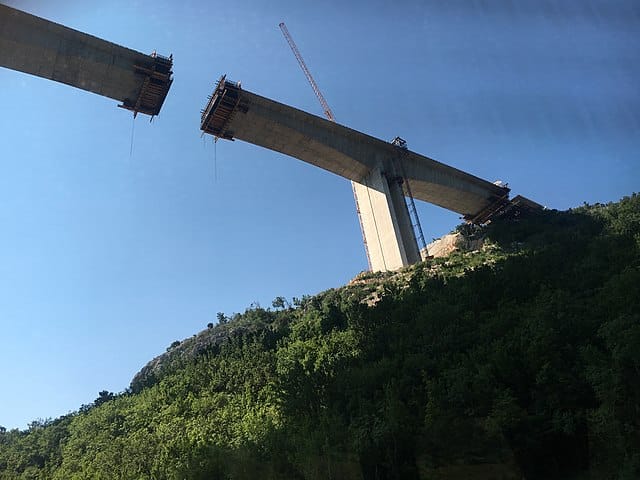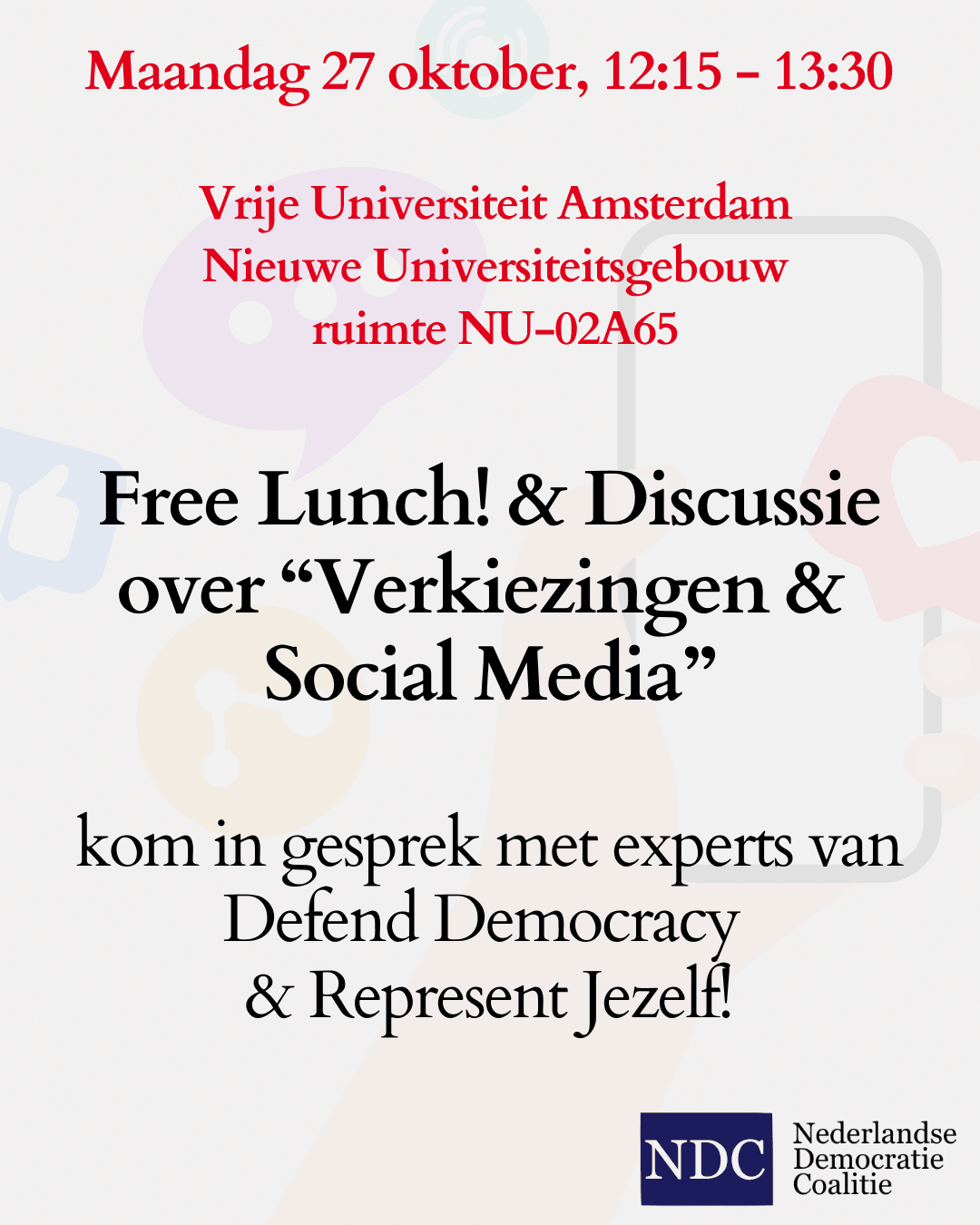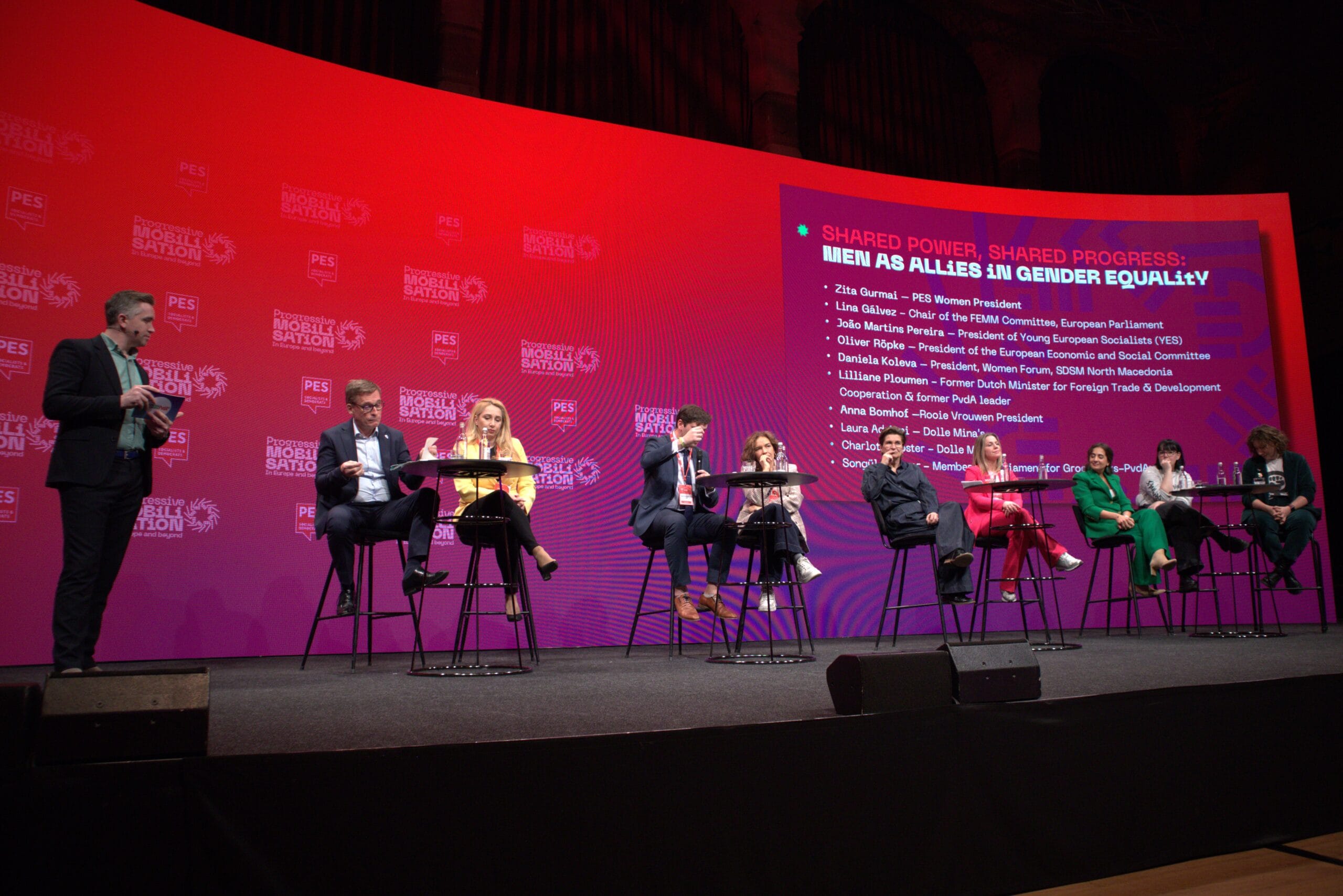Photo: Construction of a bridge over the Morača valley, Montenegro, as part of the Bar-Boljare highway -. Wikimedia Commons
For some time now, China has been making strides towards becoming the new global superpower. The Belt and Road Initiative is part of this expansion drive. China is keen to expand its global footprint and is doing so by investing heavily in infrastructure, among other things, in strategic locations under the guise of this New Silk Road. Infrastructure challenges - among others - and the inert EU accession process make the Western Balkans a perfect candidate for external influence. Not only is China increasing its influence in the Balkans economically, it is also increasingly interfering in the local context politically and socially.
The China-Western Balkans relationship has a historical basis of socialism and shared communist nostalgia. However, today, trade, investment and transport are central to China's foreign strategies for the Balkan region, among others. Here, China is cleverly capitalising on the development of these countries by making huge investments in the infrastructure and energy sectors. Chinese loans with few conditions are attractive to these countries facing economic emigration and little prospect of EU support. In many cases, this relationship leads to what is known as a 'debt trap': foreign investment is at first sight a relief for the economy, but people know that the huge loans can never be repaid. Beijing is well aware of this and thus increases the dependence of these countries towards China. If the debt cannot be repaid, alternatives must be sought that compensate China in some way. Through investment and strengthening diplomatic ties, China is securing a strategic position in the Balkans. We highlight three countries.
Serbia
Serbia has historically always had an open attitude towards non-European actors. Foreign policy has focused on leveraging support and resources from historically ideological partners such as Russia and China, including in the post-Yugoslav era. In 2009, China and Serbia signed a cooperation agreement. Initially, Chinese investments were limited and mainly focused on infrastructure. Whereas between 2009 and 2015 it was still in the range of a few to tens of millions, since then it has been in the range of hundreds of millions annually. Economic ties grew stronger and stronger and Serbia was able to secure larger investments. In the following years, leaps were made by Chinese acquisition of a steel conglomerate in 2016 and hundreds of millions of investments in mining and tyre factories in 2018. Chinese investment included by 2022 a larger amount than all EU members together - nearly one and a half billion euros (1,500 million). Mining and the car industry are China's flagships in Serbia. Low production costs, skilled labour and the European market around the corner make Serbia attractive for the car industry. Beijing is not the only investor but by far the largest and is seen as a major boost to Serbia's ailing economy. The large investments have caused a revival of the steel and mining industries. Just last October, new contracts were signed with Chinese companies to 300 kilometres to new roads. The short-term effects are a breath of fresh air for the economy, but due to the limited conditions imposed by Serbia, it is uncertain what the possible long-term consequences are in terms of (dis)dependency and environmental impacts.
Not only in the economic sphere, China is now also making its mark in politics, media and academia. Politicians and administrators responsible for the sectors in which China is investing economically express nothing but appreciation. Agreements between China and local authorities are not uncommon, such as the Smart City project in Belgrade. In the media China put in positive light only, where economics prevails and sensitivities are avoided. Pro-Chinese utterances easily find their way into the largely state-owned media landscape, which benefits from Beijing money.
So far, Serbia has been fairly successful in this balancing act between East and West - Serbia characterises itself with this multi-vector policy. Economic and political cooperation have made China one of Serbia's biggest partners. There are even voices that Serbia should become part of the BRICS countries, just to show how intimately the relationship with these countries is felt, especially with China and Russia. The EU has been warned.
Montenegro
Central to the Montenegro-China story is a megaproject of a 165-kilometre-long highway to connect the coastal town of Bar with the interior to the border with Serbia. The project - known as Bar-Boljare - was initiated in 2014. Enabling a highway through almost impassable terrain of mountains and valleys requires a lot of money. A contract with the China Road and Bridge Corporation combined with a Chinese loan of almost $700 million made the construction of the first part possible - a 41-kilometre section opened in 2022. Montenegro, meanwhile, is up to its ears in debt. The national debt in 2021 was As big as the country's GDP, half of which is owed to Beijing. Montenegro seems to have since realised that this is an unsustainable state of affairs. Despite this negative connotation, the project is mostly Framed as the gateway to Europe and thus part of Montenegro's European integration. China has been mentioned as little explicitly as possible by politicians and policymakers in recent years, to give the appearance that it is really a Montenegrin project after all. The fact that the highway provides connectivity so far mainly internally and in the future with Serbia - which is at odds with the EU in several areas - seems to matter little in this rhetoric. Showing modernisation is the main goal.
The media is predominantly positive but also increasingly focused on the negative consequences of Chinese interference and the negative impact of infrastructure projects. Beijing is mostly seen as a welcome economic partner. China's political influence, on the other hand, is limited, this because Montenegro plays a small role geopolitically and the size of its economy is limited in the region. In addition, Montenegro is decidedly pro-EU.
Montenegro has turned out to be a textbook example of how not to deal with a superpower like China and how overly high ambitions can fall by the wayside, although Montenegrins themselves mostly see the economic prosperity that the highway, for example, has brought so far, such as in the field of tourism. While the public debt has been falling recently, Montenegro seems to have learned from the economic risks posed by Chinese money. Nevertheless, the effects of these contracts will seep into the Montenegrin economy for a long time. Montenegro is now aware of the political sensitivity that cooperation with Beijing entails, and deals to finance the next sections of the Bar-Boljare highway have not yet been concluded. Here lies an opportunity for European investment to give Montenegro more hope, after all these years, of actually becoming the gateway to Europe, in cooperation with Europe.
Northern Macedonia
In northern Macedonia, characteristically, a motorway project is also on the menu, but one whose first metre is not yet in use. The Kicevo-Ohrid highway plan was presented in 2014. The cost is now estimated at around 600 million euros, without even a passable stretch of road. North Macedonia is a key link in the Belt and Road Initiative. It is the hub for transport from the Mediterranean's largest port - in Piraeus, Athens in which China has a majority stake - to the rest of south-eastern and central Europe. Especially when the country joins the EU, access to the European market is guaranteed.
Beijing knows how to exploit the corruption problem in northern Macedonia. Donations and trips to China are used to try to persuade policymakers to cooperate. During the two highway projects, senior officials bribed. The Macedonian Media sector sensitive to Chinese propaganda. Due to the large number of media outlets, there is a lot of competition competing for funding. Combined with little public interest and limited critical scrutiny, media are susceptible to Chinese methods of influence. Through the Confucius Institute China knows how to influence academia - the Communist Party's official views are disseminated and there is little room for discussion.
China wants to become the global superpower, and with that comes different forms of power, both economically but also around the overall image of China. The Western Balkans is an attractive region to guarantee China a place on the European continent. The huge loans and subsequent debt burden make already fragile countries potentially dependent on China and thus even more vulnerable. Through financial investment and strengthening diplomatic ties, China has become a major player on the European continent, economically but also in governance and media. To counterbalance and not give China free rein, it is crucial that European institutions continue to put an attractive economic and governance model on the agenda in the Western Balkans. Clear prospects of EU accession are and will remain the most important means to this end. In this, there are still many obstacles to overcome - both within the EU and in the candidate countries themselves.




